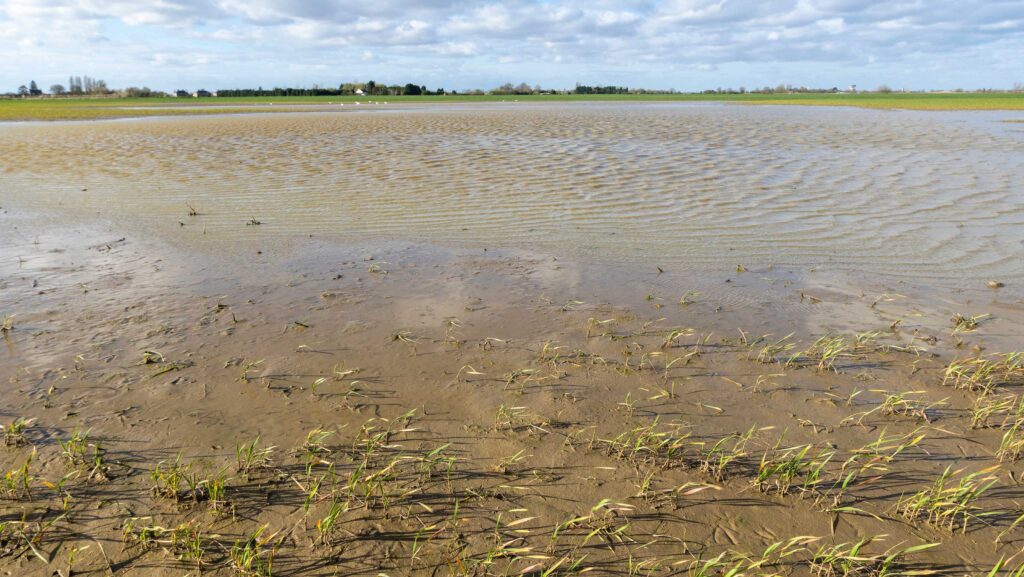Heavy showers crush farmers hopes of late spring plantings
 © Gary Naylor Photography
© Gary Naylor Photography Further rainfall and flood warnings across the UK have scuppered plans for farm businesses hoping to get spring crops in the ground.
An exceptionally wet winter has meant cereals and oilseed production could be down by more than a fifth this summer and is likely to lead to higher volumes of imports, especially for milling wheat.
Total production of wheat, barley, oats and oilseed rape is forecast to drop by 21% this summer compared with the average for the past eight years, according to analysis from the Energy and Climate Intelligence Unit (ECIU).
See also: Wheat surges above £180/t as Black Sea tensions flare up
Tom Lancaster, land analyst at ECIU, said: “This washout winter is playing havoc with farmers’ fields, leading to soils so waterlogged they cannot be planted or too wet for tractors to apply fertilisers.
“This is likely to mean not only a financial hit for farmers, but higher imports as we look to plug the gap left by a shortfall in UK supply.
“There’s also a real risk that the price of bread, beer and biscuits could increase as the poor harvest may lead to higher costs.”
Lincolnshire arable farmer Colin Chappell said: “It’s had a massive impact on us. We went through the winter with virtually nothing viable drilled and, while it’s now dry enough to plant some fields, some of them are so bad I don’t think they’ll get drilled this year.
“The situation is very hit-and-miss. Looking ahead, the new Sustainable Farming Incentive is how my farm is going to survive over the next few years.
“The climate is making farming on heavy clay soils like mine very difficult and quite demoralising.”
Milling wheat
Milling wheat has been particularly badly affected by this year’s wet planting window, UK Flour Millers says, with output expected to be down by up to 40% on 2023 levels.
Joe Brennan, head of technical at the trade association, said: “The poor outlook for the upcoming UK wheat harvest is going to pose a real challenge.
“For milling wheat, this is exacerbated by the decline in popularity of high-quality breadmaking wheat varieties, Group 1, which make up the backbone of UK flour milling demand.
“We’ll be going into next season very low on home-grown quality breadmaking wheat, which will make next season even tighter.”
Planting and variety survey
Meanwhile, arable farmers are being urged to complete the AHDB’s planting and variety survey to help provide the industry with more information on what crops did manage to get planted and how badly production has been hit.
Some farmers took to social media to vent their frustrations at the excessive rainfall and abysmal planting conditions the UK has faced this spring.
Joe Stanley, head of sustainable farming and knowledge exchange at the Game and Wildlife Conservation Trust’s Allerton Project in Leicestershire, said on X that this would also have a big impact for livestock farmers later in the year.
Finally puts paid to many farms’ hopes of spring cropping. A first ‘year without harvest’ for some after winter crop failures @SteveBarclay. Big impacts for livestock sector later in year.
🤞for improving conditions to at least plant summer fallows & agri-environment options. https://t.co/Tc7NuoEkjO
— Joe Stanley 🇺🇦 (@JoeWStanley) April 28, 2024
